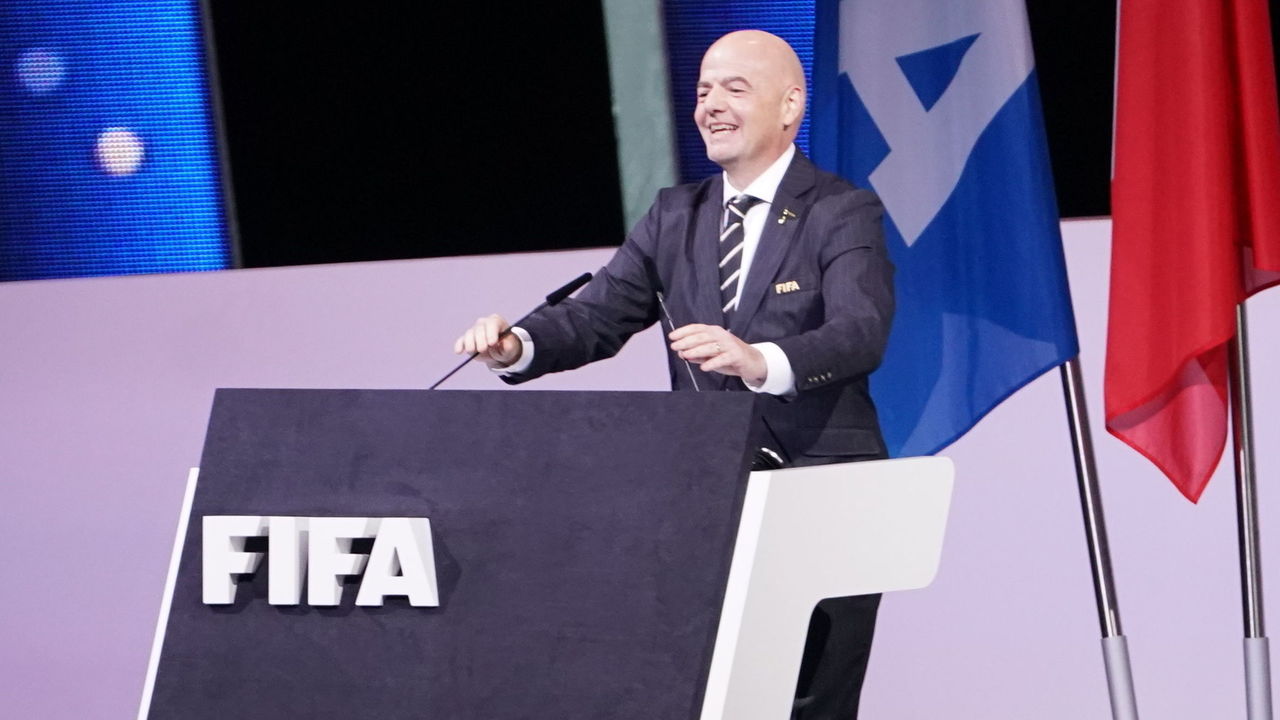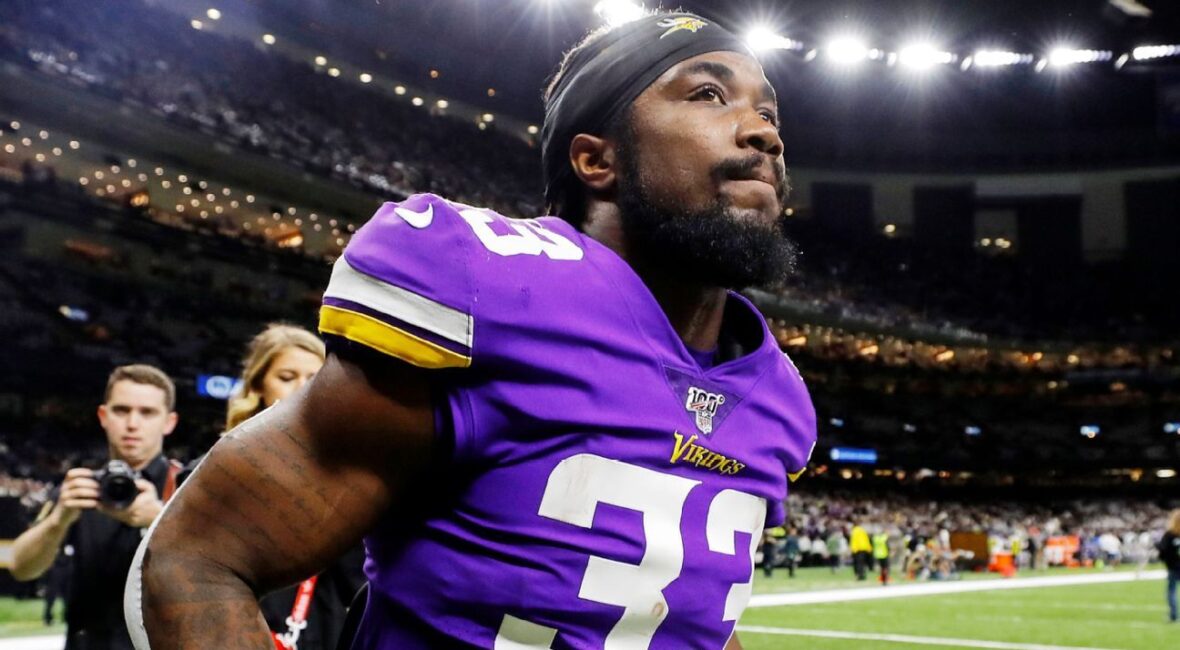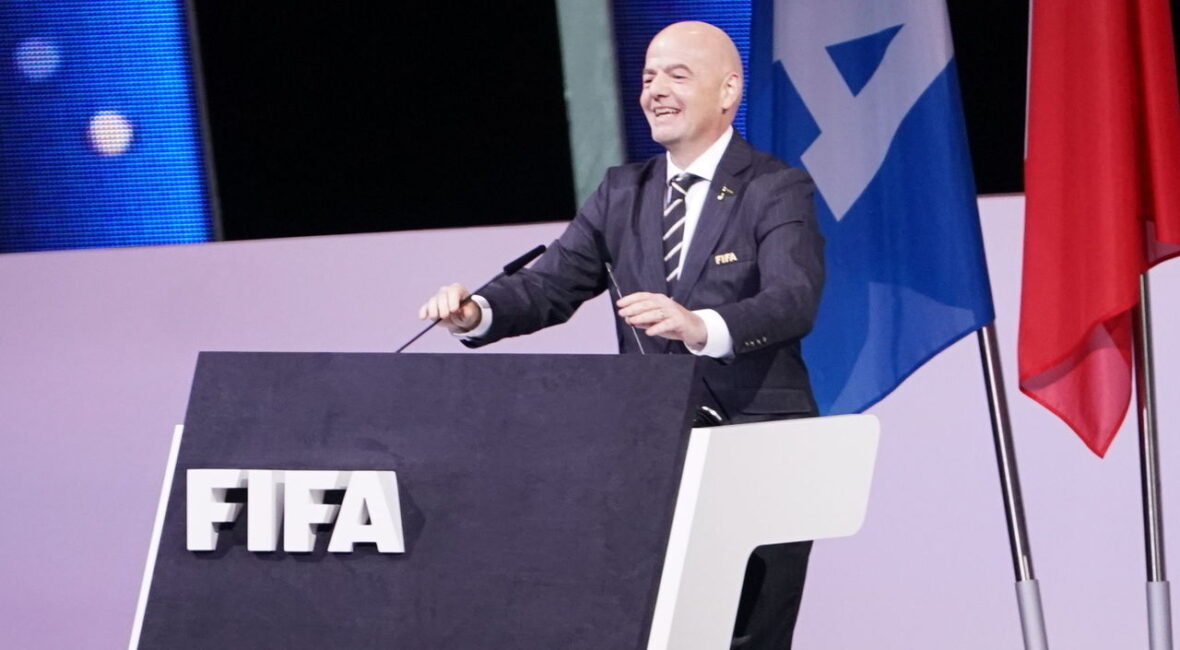Dalvin Cook showed up for work Tuesday, on the day the Minnesota Vikings were scheduled to report to training camp. No, the running back does not yet have the new contract extension he wants. And no, in spite of the threat he reportedly made in June, there was never really a chance he was going to hold out of camp either way.
The traditional training camp holdout by a player entering the final year of his contract is not something you can expect to see much this year, and it has nothing to do with the coronavirus pandemic. The reason camp holdouts are mostly a thing of the past is what the league’s new collective bargaining agreement, approved in March by owners and players, says about them. Here’s the exact text in Article 8, Section 1(b):
A player shall not receive an Accrued Season for any League Year in which the player is under contract to a Club and in which (i) he failed to report to the Club’s preseason training camp on that player’s mandatory reporting date; or (ii) the player thereafter failed to perform his contract services for the Club for a material period of time, unless he demonstrates to the Impartial Arbitrator extreme personal hardship causing such failure to report or perform, such as severe illness or death in the family.
This was a priority for the owners in the last round of CBA talks. They wanted to stiffen penalties for training camp holdouts, and they did. The previous CBA stipulated that players could lose an accrued season only if they didn’t show up to camp by the date 30 days before the team’s first regular-season game. So, in Cook’s case, that date would have been Aug. 14. Under the new CBA, it was Tuesday.
Why does this matter? Losing an accrued season affects a player’s free-agency status. As a 2017 draft pick, Cook has accrued three seasons so far, and he needs four to be eligible for unrestricted free agency. If he didn’t earn an accrued season for 2020, then next March he’d only be a restricted free agent, meaning the Vikings would have the right to match any offer he got from another team.
2 Related
Now, even when the mandatory reporting date was later under the old rules, this didn’t stop everyone. For example, last year, Cowboys running back Three other things to know about this new CBA feature: Don’t expect any “hold-ins,” either. There are some around the league who believe a player in Cook’s situation would show up for camp and just refuse to practice until a new deal is hammered out. It’s possible, but go back and reread Article 8, Section 1(b) again and note where it says, “the player thereafter failed to perform his contract services for the Club for a material period of time.” That’s the part that would allow the team to dock the player an accrued season if he showed up and refused to practice or take part in mandatory team activities. Could a player in Cook’s situation claim an injury? Sure. But if the team didn’t believe him, or diagnose him as injured, the matter could end up in front of an arbitrator, who could rule in the team’s favor and deny the player an accrued season. Fines are stiffer, but not for Cook, Mixon, Kamara or Kittle. The new CBA raised the maximum fine for skipping training camp from $40,000 per day to $50,000 per day, but fines for players who are still on their rookie contracts are capped at $40,000 per day as long as they’re not in their fifth-year option season. Any player drafted in 2017 is entering the fourth year of his rookie deal, so his fines stay at $40,000 per day if he skipped days. Not that it matters much, since the threat of losing an accrued season probably acts as a more significant deterrent. Fines can still be waived, if you’re on your rookie deal. Customarily, when players have held out of camp and ultimately agreed to new deals, the team has tended to waive the camp holdout fines. There is a new rule in the CBA that prohibits teams from doing that. In Article 42, Section 1(vi) and 1(vii) it reads, “Any such fines shall be mandatory, and shall not be reduced in amount or waived by the Club, in whole or in part, but must be paid by the player or deducted by the Club.” But that wording doesn’t appear in Sections 1(viii) or 1(ix), which are the ones that deal with players on their rookie contracts. For players who are still on their rookie deals, teams are still permitted (though obviously not required) to forgive camp holdout fines. If a veteran player such as, say,
Swiss authorities opened a criminal investigation Thursday against FIFA president Gianni Infantino regarding secret meetings he held with the country’s top lawyer.
The government appointed special prosecutor Stefan Keller to review allegations of criminal conduct against attorney general Michael Lauber and Infantino.
Lauber and Infantino had met twice in 2016 and 2017 as Swiss authorities conducted a sweeping investigation into widespread corruption at FIFA.
“As President of FIFA, it has been my aim from Day 1, and it remains my aim, to assist the authorities with investigating past wrongdoings at FIFA,” Infantino said in a statement. “FIFA officials have met with prosecutors in other jurisdictions across the world for exactly these purposes.
“People have been convicted and sentenced, thanks to FIFA’s cooperation, and especially in the United States of America, where our cooperation has resulted in over 40 criminal convictions. Therefore, I remain fully supportive of the judicial process, and FIFA remains willing to fully cooperate with the Swiss authorities for these purposes.”

Lauber offered to resign last week over complaints he lied about the details of the June 2017 meeting with Infantino in Bern. Lauber and Infantino said they couldn’t recall the discussion that took place, and the attorney general neglected to take notes.
“On the basis of general life experience, such a case of collective amnesia is an aberration,” the federal court ruling said, according to The Associated Press.
Lauber faced intense criticism of his handling of the corruption case after German publication Der Spiegel published an expose in November 2018 suggesting favorable treatment toward Infantino, who had complained about the number of investigations that had been opened against FIFA officials.
Infantino promised to clean up FIFA when he succeeded Sepp Blatter as president of the organization in 2016. Infantino was re-elected last year for a second term.
Swiss authorities have failed to land a single conviction since FIFA officials were arrested at a hotel in Zurich in May 2015. Blatter and ex-UEFA boss Michel Platini were also charged with “suspicion of criminal mismanagement and suspicion of misappropriation.” That investigation focused on a $2-million payment Blatter had made to Platini.
More charges were brought against former FIFA secretary general Jerome Valcke and Paris Saint-Germain president Nasser Al-Khelaifi. Valcke, who’s already serving a 10-year ban from world soccer, is suspected of accepting bribes over World Cup television rights. Bribery charges against Al-Khelaifi were dropped after an out-of-court settlement.




